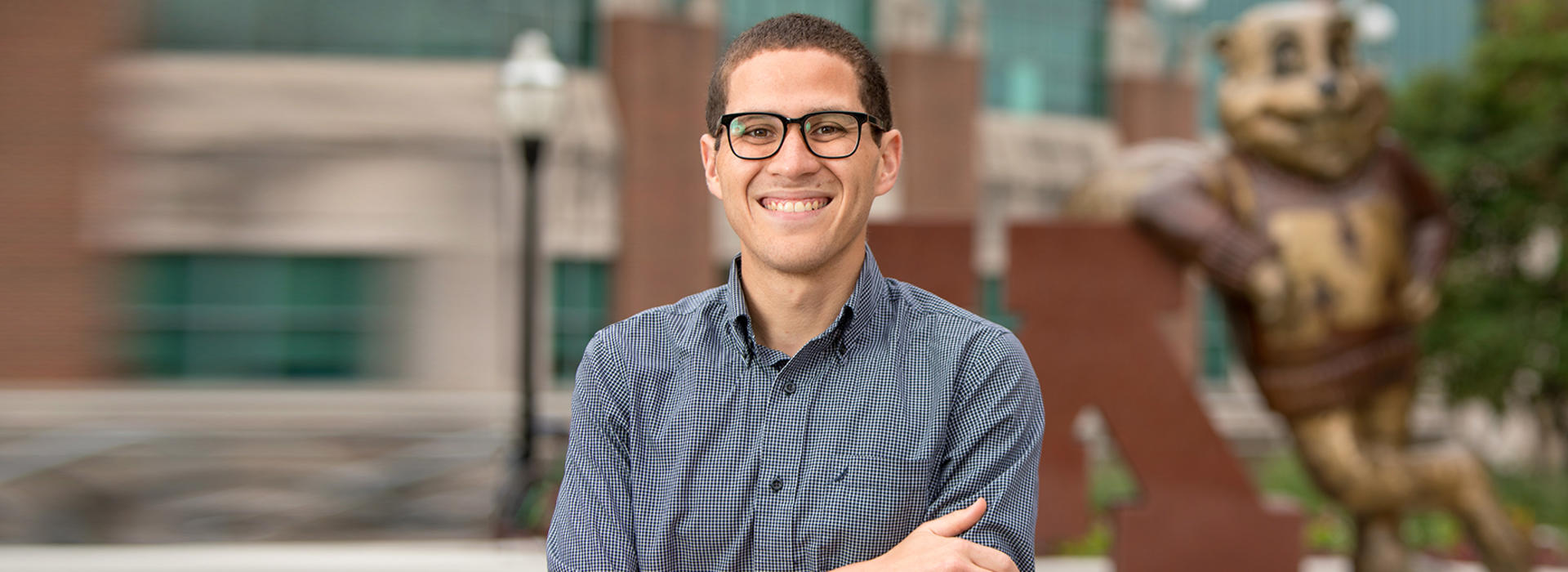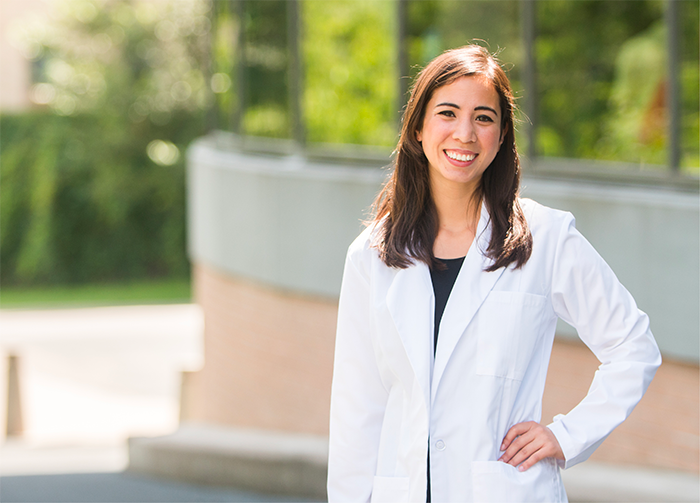
Degrees Offered

MEDICAL DOCTOR (MD)
Our world-class MD program uses a basic and clinical science curriculum, integrated across all four years of a student’s formal education. This helps students make immediate connections between the science learned in the classroom and the patients seen in the clinic.
TWIN CITIES CAMPUS | DULUTH CAMPUS | CENTRACARE REGIONAL CAMPUS ST. CLOUD
COMBINED DEGREES
Our Medical School offers seven dual-degree programs for students with interests in combining their medical education with a degree in medical research, public health, biomedical engineering, law, business, or health informatics.
Graduate degrees
The University of Minnesota Medical School offers a number of graduate programs leading to the master of science (MS) and doctor of philosophy (PhD) degrees.
Explore Combined Degrees
Medical Scientist Training Program (MD/PhD)
Our MD/PhD program is one of 44 funded by the National Institutes of Health. We offer a broad range of scientific training opportunities in 12 different graduate programs, as well as access to clinical training opportunities across the Minneapolis-St. Paul metro area.
MD/MPH—Public Health
Understanding public health principles is increasingly important for physicians today. This program gives medical students an opportunity to earn a public health degree and increase their knowledge of population-based science; apply a scientific basis to current societal problems and concerns; and serve as leaders/practitioners who demonstrate an understanding of cultural and environmental factors that affect patients.
MD/MS in Biomedical Engineering
The program provides students with master’s level training in biomedical engineering, prepares them to have a command of technology, and delivers world-class medical research opportunities.
MD/MBA
Students can complete both the Master's of Business Administration (MBA) and Medical Doctor (MD) degrees in five years. Our graduates go on to work in healthcare entrepreneurship and new device development, pharmaceuticals, and direct care in professional settings. They also become key advisors in policy and government, able to balance the concerns of individual health needs and organizational and institutional constraints.
MD/MHI—Health Informatics
Because the interaction between health professionals and patients is at the heart of any health care delivery system, it’s essential to document the multiple decisions and actions that affect a patient’s well-being. Health informatics graduates are critical to the success of this emerging trend. The program is a single year of coursework—in addition to the four years of training for the MD—which prepares medical students to apply information technology to medicine.
MD/JD—Law, Health, and the Life Sciences
Complete both a Juris Doctor (JD) and a Medical Doctor (MD) in less time, with more academic support—and potentially more financial support. The program provides interdisciplinary training that prepares graduates to address the legal, ethical, and social implications of medicine, medical developments, and medical policy. Graduates can practice law, medicine, or both.
DPT/PhD—Physical Therapy and Rehabilitation Science
Each year we offer one to two selected students an opportunity to combine entry-level doctor of physical therapy (DPT) preparation with PhD preparation in rehabilitation sciences. This streamlines the process for a DPT student to continue pursuit of an additional doctoral research degree. Students must be enrolled in the DPT program prior to applying for this joint program option. Anticipated time to complete is approximately six to seven years.
Explore Related Programs
BS in Mortuary Science
The bachelor of science in mortuary science combines the study of behavioral, physical, and applied sciences to prepare graduates for careers as knowledgeable, skilled, and innovative funeral service professionals. Graduates are prepared to serve bereaved members of their communities in a manner that is proficient, dignified, and caring.
Doctor of Physical Therapy
The doctor of physical therapy (DPT) prepares students from diverse backgrounds with the clinical, professional, and research skills necessary to become primary care practitioners who serve the individual rehabilitation needs of each patient.
History of Science, Technology, and Medicine
PhD, MA, undergraduate minor
This dynamic, interdisciplinary field has grown due to increasing recognition that science, technology, and medicine are among the most important cultural phenomena of the modern age.
Explore Graduate Degrees
MS in Stem Cell Biology
MS and PhD in Medical Physics
MS and PhD in Rehabilitation Science
PhD in Biochemistry, Molecular Biology, and Biophysics
PhD in Microbiology, Immunology, and Cancer Biology
MS and PhD in Integrative Biology and Physiology
PhD in Molecular, Cellular, Developmental Biology, and Genetics
PhD in Neuroscience
MS and PhD in Molecular Pharmacology and Therapeutics (MPaT)
Biomedical Sciences (BMS) MS Program: Gateways to Medicine and Research (Duluth)